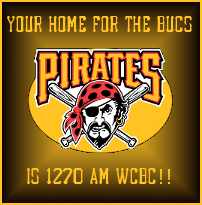June 2nd, 2020 by WCBC Radio
The Maryland Department of Health (MDH) today will begin rolling out a new state-wide campaign to educate Marylanders about the importance of contact tracing and how it is a vital tool in the fight against the spread of coronavirus.
The campaign will help support the newly developed “COVID Link,” a state-of-the-art data management platform that will facilitate MDH’s contact tracing partnership with local health officials.
“Our new campaign will help Marylanders understand the contact tracing program and its role in reducing the spread of this disease,” said Governor Larry Hogan. “While we have taken a series of bold and aggressive actions to flatten the curve, contact tracing is one of the four building blocks needed to contain the virus and allow us to fully reopen the state.”
The campaign’s slogan, “Respond. Connect. Recover,” signifies that all Marylanders have an important part to play in preventing the spread of COVID-19, which has resulted in the deaths of more than 2,400 people in the state. The outreach program will include a series of educational videos, public service announcements, social media posts, website content, informational fact sheets and frequently asked questions, and other outreach materials.
“Contact tracing – along with widespread testing, ample supplies of PPE and hospital preparedness – is how we will keep Maryland moving toward a safer and healthier future,” said MDH Secretary Robert R. Neall. “Already, Maryland residents are coming to understand why it is important to work with their local health departments, which are successfully reaching out to people who have been exposed to help contain the disease.”
For Marylanders who have had COVID-19, working with contact tracers has helped combat the disease by connecting friends, family members and acquaintances to local health departments.
Michele Spaulding, 62, worked with a contact tracer from the health department in Calvert County to identify people who attended a real estate open house she organized before restrictions were announced limiting the number of people at such gatherings. Spaulding was one of the first positives cases in the state.
“We need to cooperate with contact tracers because we are all in this together,” Spaulding said. “We have to help one another. If someone calls, please tell them where you were and who you were with. Believe me, it could save someone’s life.”
Todd Poorman, 41, of Anne Arundel County, likely passed the virus to his seven-week-old son, who also tested positive for the disease. Both have recovered.
“I am grateful for the contact tracer from the health department who called me to check in every single day I was in quarantine,” Poorman said. “We figured out who I was in contact with, which I had already done anyway on my own to a certain extent. There is a lot of stigma out there, but we need to move past the fear and work together.”
Contact tracing is not a new strategy in the fight against infectious disease and has been effectively employed during other health emergencies, such as the H1N1 pandemic in America and Ebola outbreaks in Africa.
MDH has quickly expanded its team of contact tracers and now has 1,400 investigators across the state’s 24 jurisdictions. Starting this week, the program will have the capacity to track 1,000 cases and up to 10,000 contacts daily. On April 22, Governor Hogan announced a contract with the National Opinion Research Center (NORC), the nation’s oldest and largest university-based research firm, to hire and train contact investigators.
MDH’s contact tracing program works like this: when an individual tests positive, case investigators reach out to that person by phone within 24 hours. Based on information collected about the COVID-19 positive individual’s symptoms and contact history, case investigators will call other people with whom the individual has had close contact and provide necessary guidance about monitoring symptoms and isolating at home.
When the phone rings, the caller ID will read “MD COVID.” Depending on whether the contact investigator is calling directly from NORC or a local health department, there will also be a list of phone numbers provided to verify the caller’s identity. Maryland’s contact tracing workforce is trained to ensure that all personal information is collected in accordance with regulations and guidelines to protect privacy and personal health information.
The contact tracer will ask about the individual’s health, any potential symptoms, and the duration of those symptoms. They may ask about an individual’s whereabouts and interactions for a specific period of time. A contact investigator will never ask for a Social Security number, financial or bank account information, or personal details unrelated to COVID-19. They will not ask for photographs or videos, passwords or any payment.
For more information on contact tracing in Maryland, please visit https://coronavirus.maryland.gov/pages/contact-tracing.




.jpeg)













June 02, 2020 at 3:54 pm, Dan said:
Don’t call me!!!!